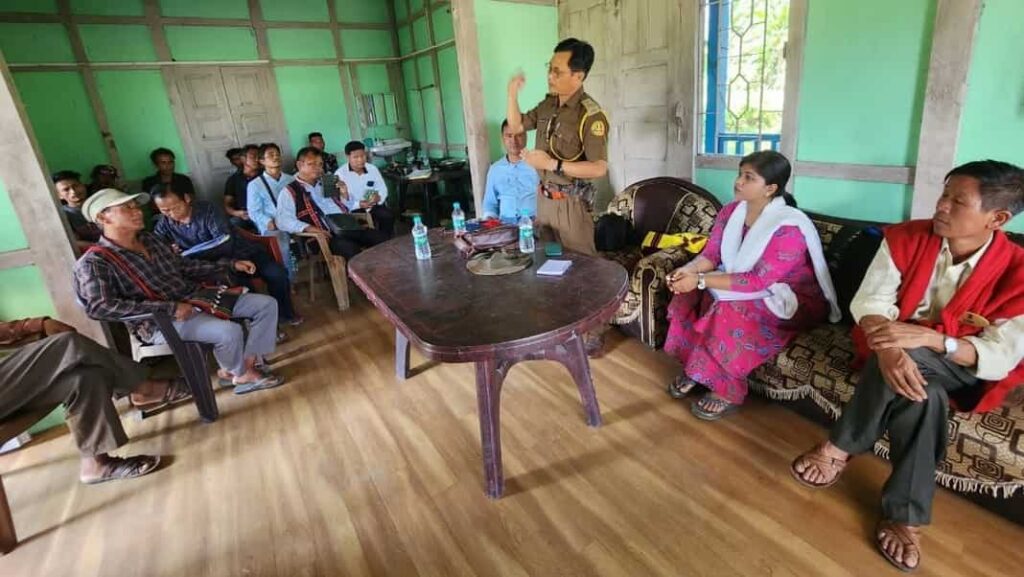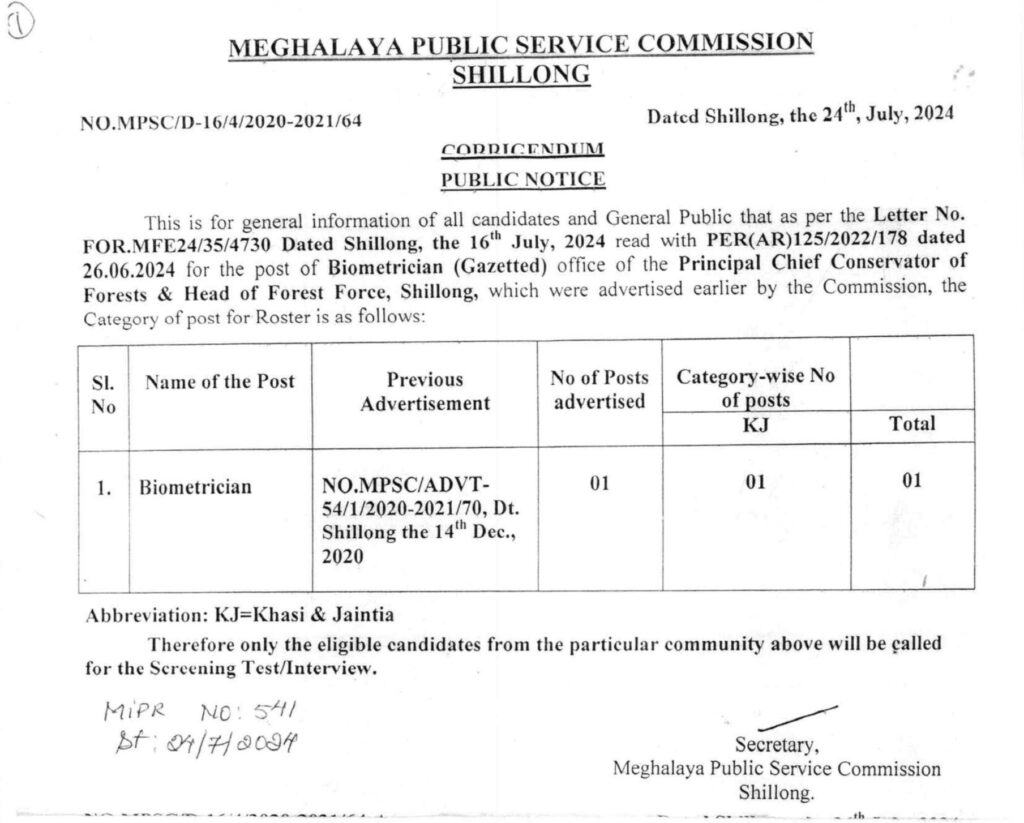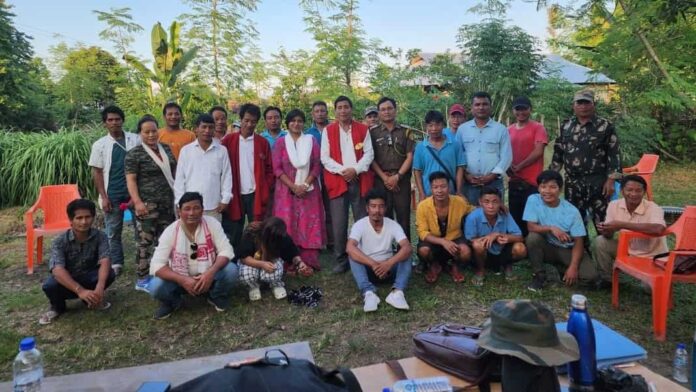Guwahati, July 25: Assam’s Village Defence Parties have inspired a biodiversity conservation society to have Community Surveillance and Monitoring Teams( CSMT) to foster community collaboration to combat wildlife crimes and illegal trade.

The initiative, spearheaded by Aaranyak’s Legal and Advocacy Division (LAD), is currently operational in eastern Arunachal Pradesh, around the D’Ering Wildlife Sanctuary. CSMTs, comprising local community members, are the result of extensive consultations with community members, local NGOs, social leaders, and forest officials.
“By involving the community directly in surveillance and monitoring efforts, CSMTs empower locals to protect their natural resources, promote conservation, and deter illegal activities such as poaching and habitat destruction,” said Dr. Bibhab Kumar Talukdar, CEO of Aaranyak and a globally acclaimed conservation scientist.

Supported by the US Fish and Wildlife Service and Resilience Funds-Global Initiative, CSMTs are multi-stakeholder groups adaptable to any community structure. In Northeast India, these teams integrate eco-development councils (EDCs), student and youth organizations, local conservation NGOs, and Village Councils. Their activities are closely coordinated with Forest Departments, ensuring effective protection of wildlife and habitats.
Building on the success in Arunachal Pradesh, Aaranyak is initiating similar efforts in western Mizoram around Dampa Tiger Reserve and parts of Manipur. The CSMTs model draws inspiration from Assam’s Village Defence Parties (VDPs), aiming to foster community collaboration to combat wildlife crimes and illegal trade.
“The CSMTs in fringe villages of designated wildlife protected areas will monitor local markets, track unspecified guests, and conduct awareness campaigns. They are crucial for keeping the community vigilant against illegal wildlife activities,” explained Dr. Jimmy Borah, Senior Manager of LAD at Aaranyak.

Additionally, CSMTs will maintain strong communication channels with forest and local enforcement officials, promptly reporting any observed illegalities. They are also tasked with conducting social surveys to identify alternative livelihood sources and promoting eco-tourism activities like homestays, nature guiding, and adventure tours.
“The primary goal of CSMTs is to deter wildlife crimes in critical areas. Northeast India, a hotspot for illegal poaching and a transit route for exotic animal trade, requires vigilant ground-level efforts to tackle these crimes,” emphasized Ivy Farheen Hussain, Senior Project Officer at Aaranyak.
Operational CSMTs around D’Ering Wildlife Sanctuary have already started assisting their communities in eco-tourism and alternative livelihood activities, reducing dependence on protected forests and wildlife.
Also Read: Dr KC Boro meets Guv, seeks justice for sexually assaulted minor girls in Ampati
Watch
Find latest news from every corner of Northeast India at hubnetwork.in, your online source for breaking news, video coverage.
Also, Follow us on-
Twitter-twitter.com/nemediahub
Youtube channel- www.youtube.com/@NortheastMediaHub2020
Instagram- www.instagram.com/ne_media_hub



